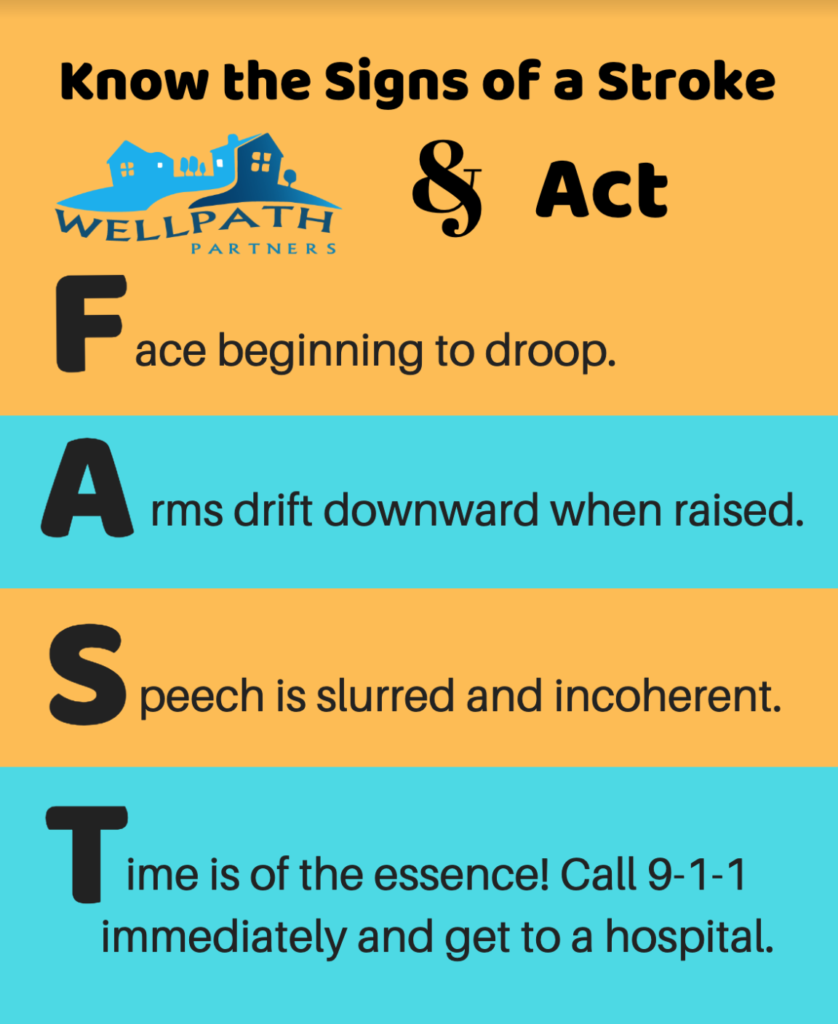
Of the many health threats faced in old age, stroke is one of the most prominent and detrimental to long-term wellness. While strokes can be a threat to anyone at any age, your chances do go up as you get older; they double every decade after age 55. Ischemic strokes are particularly common where a blood vessel that takes blood to your brain gets plugged. It happens when fatty deposits in arteries break off and travel to the brain, or when poor blood flow from an irregular heartbeat forms blood clots. This lack of blood flow to the brain immediately kills brain cells and disrupts brain function. Fast action is essential to treating stroke. In order to do so, however, one must know the FAST signs of stroke to identify early signs and take early action:
Face- Due to lack of blood flow, faces of people undergoing stroke begin to droop. Asking the person to smile can make this droop extra apparent.
Arms- Asking the person to raise both arms can also be an effective droop test. If one arm tends to drift downward, this could be due to lack of essential blood flow brought on by a blood clot.
Speech- Slurred speech is also a key indicator of stroke. Brain damage brought on by insufficient blood flow can immediately affect cognitive functioning making it difficulty to complete sentences.
Time- If any one of the above symptoms persists, there’s a high probability that the person is having a stroke and needs medical attention as soon as possible. Call 911 or get to a hospital fast! Brain cells are dying.
Recovery time for seniors is especially difficult and prolonged as recovering brain activity is difficult while also experiencing degenerative diseases.
Other medication being taken for other illnesses like heart disease can raise your chances of stroke. For instance, blood-thinning drugs, which doctors suggest to prevent blood clots, can sometimes make a stroke more likely through bleeding. Hormone therapy, used for menopause symptoms like hot flashes, and low-dose estrogen in birth control pills may also increase risk for stroke. Speaking with a doctor about the side-effects of stroke prevalence may be advisable when being prescribed new medication.
WellPath Partners is your senior resource referral guide. Follow us on ALL social media platforms and join us weekly for more content and public health discussions.
By Prithvi Chauhan
